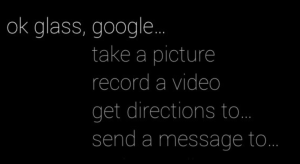What Problem Will Google Glass Solve to Become Indispensable?
 Hypothesis: users of every major computing platform have come to consider each platform indispensable for their daily activities in both consumer and enterprise contexts. Let’s examine each of the major computing platforms to understand this assertion:
Hypothesis: users of every major computing platform have come to consider each platform indispensable for their daily activities in both consumer and enterprise contexts. Let’s examine each of the major computing platforms to understand this assertion:
Desktops
The killer app that drove desktop PC adoption was Excel. Through the 90s, Word, email, and general web browsing drove adoption for the masses. It’s hard to argue that desktop computing isn’t indispensable to modern businesses. They will be, even in Steve Jobs view, always around, though perhaps as trucks instead of cars.
Cellphones
Business executives and heavy-travelers drove cellphone adoption because they empowered those individuals to communicate on the road. As the form factor became pocket friendly, it was inevitable that consumers would adopt them. Obviously, cellphones are indispensable today.
MP3 players
Although MP3 players never reached 98% penetration in any market, they reached a substantial percentage of society. Most MP3 player-toters, most considered the device indispensable for at least one reason, if not multiple. Possible reasons included: work out companion, being a music junkie, traveling, airplanes, and to escape reality. MP3 players solved at least one of many significant problems for their users. Mobile MP3 listeners never wanted to go back to life without mobile music.
iPad
The iPad has become essential to mobile workers (hospitals, field service workers, many retail staff, etc) because of the form factor. It’s become indispensable to consumers for at least one of any number of reasons, even among those that use a PC all day at work. The potential uses are many: unwilling or unable to deal with the complexity of PCs, reading, using in bed, keeping kids busy, touch-based games. Although the iPad hasn’t reached 95% adoption, the vast majority of iPad users don’t want to go back to a life pre-iPad.
What about Glass?
What problems will Glass solve so that users are unwilling to go back to life without it? The enterprise use cases are clear: as a corporate owned and managed device, employers will dictate that employees use it in cases where it creates value per some economic value unit (customer transaction, patient interaction, field service repair, etc).
Will consumers find glass to be indispensable? If they forget Glass at home in the morning, will they feel pain all day? I struggle to understand that pain since consumers will fall back on their smartphone if they leave Glass at home. Glass doesn’t actually “do” anything more than a smartphone, so I’m not sure what pain consumers will feel if they leave Glass at home.








